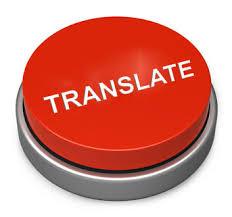Why is translating an Arabic fiqh text to English is a challenge to AI?
There are now multiple platforms and websites that offer translations between Arabic and English, relying on machine translation and artificial intelligence.
Google Translate and Quillbot are two examples.
While these two, and similar ones, may be useful in providing translations that can convey the overall meaning of the original Arabic text, especially with the advances they are making, there remains to be at least one key area where such robotic translators struggle: Islamic fiqh-related texts.
The machines are getting smarter by the day, in translating Arabic texts into English and other languages.
However, this may apply to areas where the Arabic language used is pretty straightforward, or is of a nature that helps the machine to deliver a rendition that is as close as possible to the original Arabic.
For instance, machines will do rather well with economic and medical texts, given the pertinent type of language and terminology involved.
However, translation robots and AI-based platforms seem to struggle when translating highly complex Islamic texts.
This is very understandable because texts related to Islamic fiqh are not easily understood by even native Arabic speakers, given the nature of language used and the multi-layered meaning involved.
I ran a very small experiment on both Google Translate and Quillbot.
I put a fiqh-related sentence (not quite a complicated one) on Google Translate:

Obviously, the English translation is quite poor and shows how the machine struggled to even understand the last part of the sentence correctly. Overall, the translation reads odd and is incomprehensible.
I put another sentence (not even very fiqh-specific) on Quillbot.

Similar to Google Translate, Quillbot produced a poor and awkwardly worded translation in English from Arabic.
These two little experiments show that, while AI and machine translation are making significant advances, they clearly fall short of delivering an accurate, professional rendition of an original fiqh-related Arabic text into English.
Fiqh and Islamic religious texts in general use highly sophisticated language that, as explained above, many native speakers of Arabic would find difficult to decipher – let alone a machine or AI.
The Loghat Arabic Translation is a UK-based provider of Arabic translation services - delivered only by human professional translators.
